“Look at me, I start the conversation NOW!” – ChatGPT, 2025
OpenAI just rolled out a new feature for ChatGPT, and it’s designed to help you start your day right. Imagine waking up to a personalized morning briefing, news, reminders, and to-dos, all pulled together just for you.
The feature is called ChatGPT Pulse. It works while you sleep, gathering info from your chats, calendar, and even email. By morning, it delivers a clean, easy-to-digest summary straight to your phone. It sounds like a productivity dream.
But there’s a bigger question here: what’s really going on behind the scenes?
Instead of us asking AI what to do, now the AI is telling us what we should do. Welcome to the age of proactive AI.
Contents
What is ChatGPT Pulse, Really?
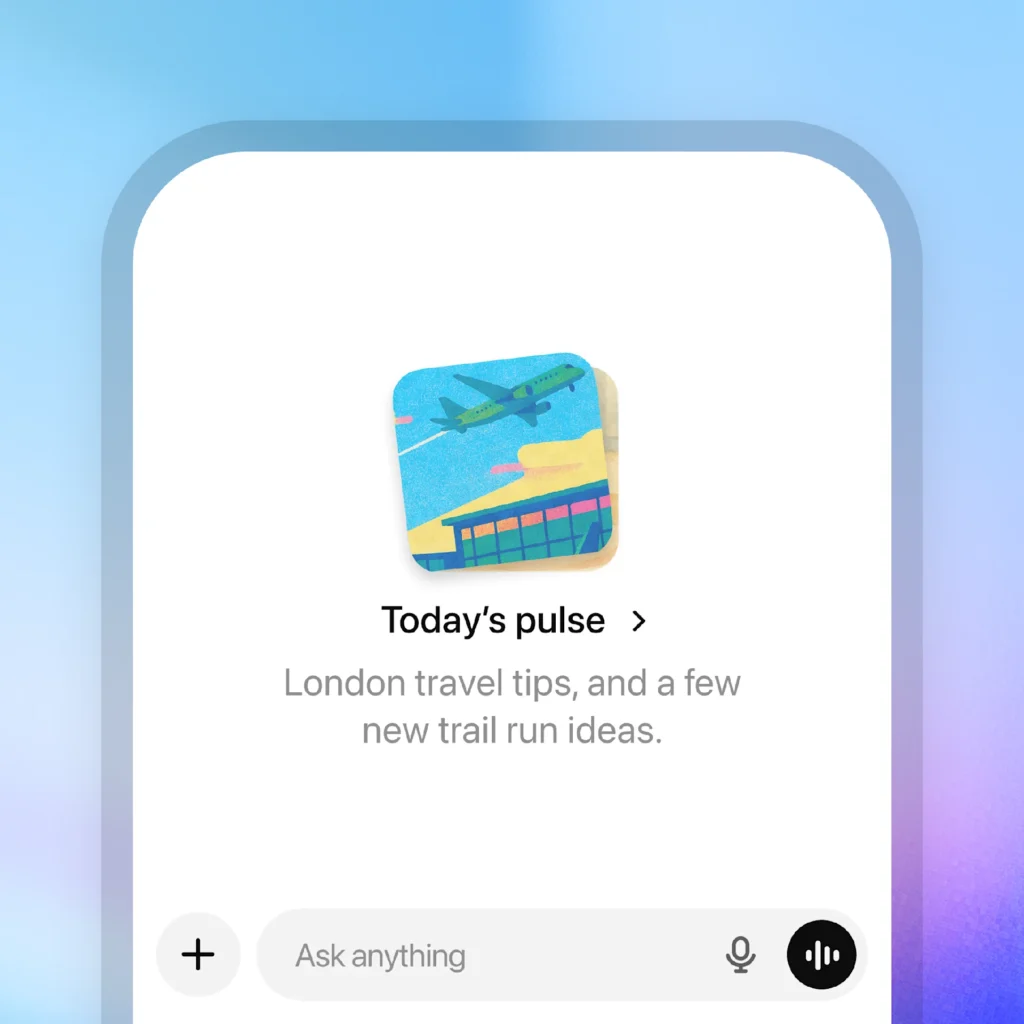
Each morning, it gives you a set of visual cards: quick, scannable updates tailored to your life, not just random news. While you’re sleeping, it’s busy behind the scenes, doing its own asynchronous kind of overnight research. It pulls from your past chats, learns from your feedback, and taps into your saved preferences to build a daily summary that feels personal.
It might remind you to follow up on a work project, suggest a dinner recipe, or even nudge you with the next step in your marathon training plan.
But the real kicker is that when you connect it to other apps, like Gmail or Google Calendar, that’s when it gets really personal. Pulse can turn a calendar invite into a full meeting agenda. It might remind you of a friend’s birthday, or recommend restaurants for your upcoming trip.
OpenAI says these integrations are off by default, so you stay in control. But let’s be honest: the feature becomes much more useful when it has access to that extra context. Basically, the more you share, the smarter it gets.
You can also give feedback on what it shows you; thumbs up, thumbs down, or ask it to dig into specific topics. Over time, this helps the system get better at knowing what matters to you. In a way, you’re helping train the AI while using it. You’re showing ChatGPT what’s important in your world, and shaping how it learns.
The Big Shift: From Reactive to Proactive AI
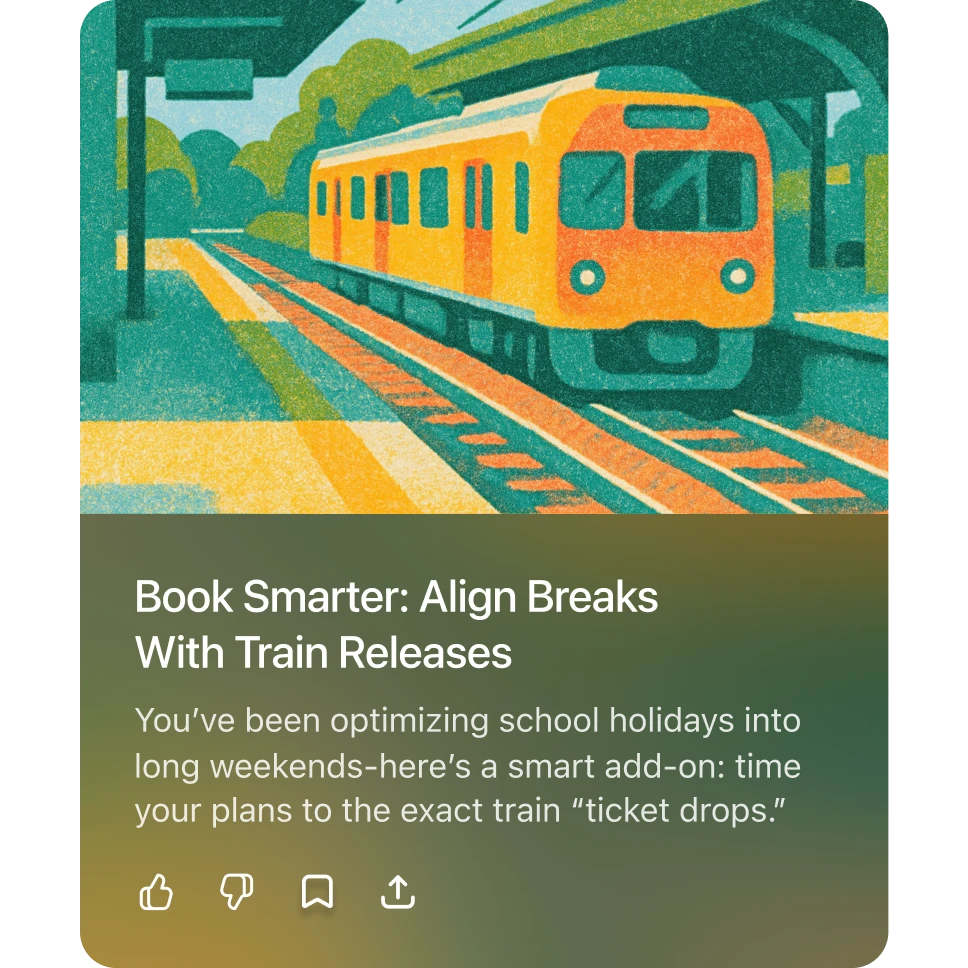
For years, AI has been mostly reactive. It waits for you to make the first move. Think about a basic customer-service chatbot. It only responds after you type something. It has no memory of your last conversation, no context beyond the question you’re asking right now. Most of our digital tools have worked this way.
Proactive AI flips that on its head. Instead of waiting, it tries to anticipate what you need before you even ask. It looks at your past data and predicts your next move.
It’s the difference between a smoke alarm and a fire inspector. A smoke alarm reacts only once there’s already a fire. A fire inspector proactively looks for risks to stop a fire from starting in the first place. That’s the leap we’re seeing now.
You’re no longer just directing the AI, but benefiting from its decisions. OpenAI says this takes away the “burden” of figuring out the next step.
And sure, that’s true. But it also means handing over some of your decision-making power. The more we rely on AI to prompt us, the less practice we get at planning and initiating tasks ourselves.
ChatGPT Pulse is OpenAI’s first big commercial push into this proactive future. It’s a glimpse at a world where AI is a constant guide, shaping how you move through your day.
Also Read: Here Are the Top 15 Highest Paying AI Jobs in 2025 (Salaries Are Shocking)
The Bigger Picture: Toward True AI Agents
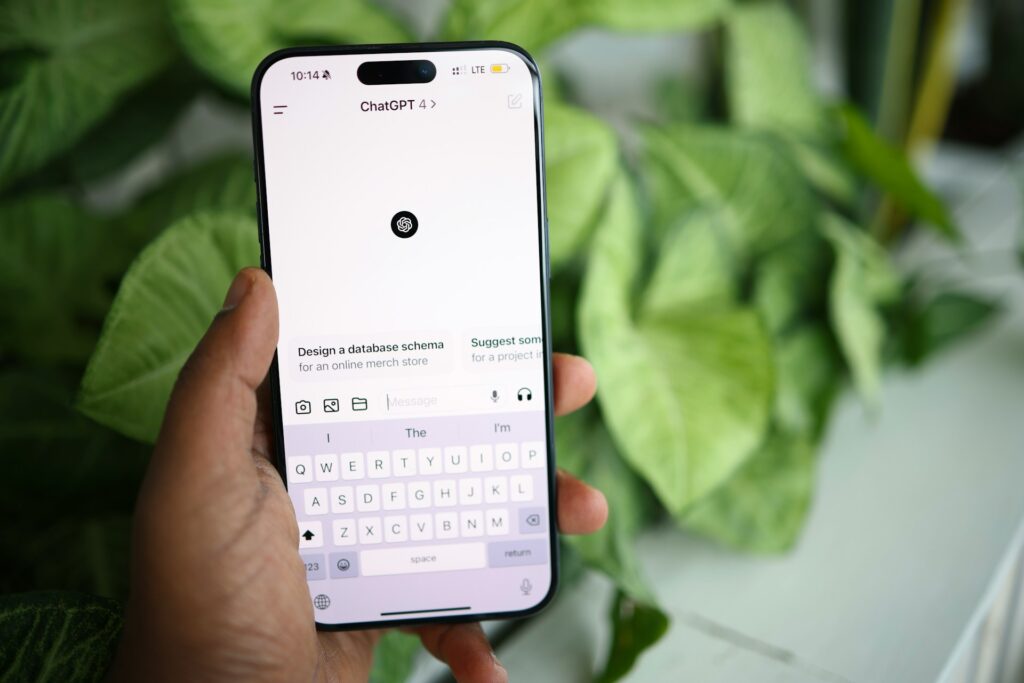
This shift toward proactive AI is part of a much bigger race across the tech world. The end goal is to build real AI agents.
These AI agents are meant to be fully autonomous software programs. They’ll understand your goals and take action on your behalf, handling complex, multi-step tasks without needing constant direction. They’ll be able to plan, reason, and learn from experience. To see where this is heading, it helps to break things down:
- A chatbot is the most basic version. It follows simple scripts and handles basic tasks.
- An AI assistant, like Siri or Google Assistant, is smarter, but still waits for you to give a command.
AI agents are the next evolution. They don’t wait. They anticipate, decide, and act. They’re built to manage full workflows, not just answer single questions.
Today we are launching my favorite feature of ChatGPT so far, called Pulse. It is initially available to Pro subscribers.
Pulse works for you overnight, and keeps thinking about your interests, your connected data, your recent chats, and more. Every morning, you get a…
— Sam Altman (@sama) September 25, 2025
That’s where ChatGPT Pulse fits in. It’s a first step toward this bigger vision. Right now, it reads your data, processes it while you sleep, and gives you a morning update. It’s a small action, but it’s a real example of an AI starting to act on its own, based on your needs.
And OpenAI has been clear: this is just the beginning. They’ve described Pulse as the “first step” toward future systems that can research, plan, and take helpful actions for you, entirely on their own.
We’re also getting a clearer picture of OpenAI’s long-term goals. According to an internal strategy doc, the company is working toward building what it calls a “super assistant.”
This would be a smart, trustworthy, emotionally intelligent AI that could handle almost anything a person could do on a computer. That includes managing your calendar, planning your vacations, and even helping with things like legal tasks.
Pulse is just the training ground. It’s where the AI learns the skills it will need for that future, and just as importantly, where users learn to trust it with more and more parts of their daily lives.
Also Read: These Top 20 Free AI Courses Make You Look Like a Pro at ChatGPT, Copilot, DeepSeek, and More
The Price of a Perfect Morning? Well, Your Data
Here’s the trade-off we can’t ignore: for proactive AI to actually work, it needs one thing—your data. And not just a little. A lot.
This isn’t the usual passive data collection we’ve gotten used to, like websites tracking your clicks with cookies. For something like ChatGPT Pulse to be helpful, you have to actively give it access to the most personal parts of your digital life: your emails, your calendar, your messages. That’s the fuel it runs on.
And with that comes some real privacy risks. Experts highlight three big ones:
- Data Persistence: Once you share your data, it sticks around. It’s not just used in the moment. It can be stored and used to train future versions of the AI long after your morning briefing is done.
- Data Repurposing: Data you shared for one reason might be used for something else entirely. That calendar entry for your doctor’s appointment? It could become part of how the AI learns your habits and routines.
- Data Spillover: When you connect different apps, you’re opening up pathways for your data to move between them. If one app gets breached, sensitive info from another could be exposed too.
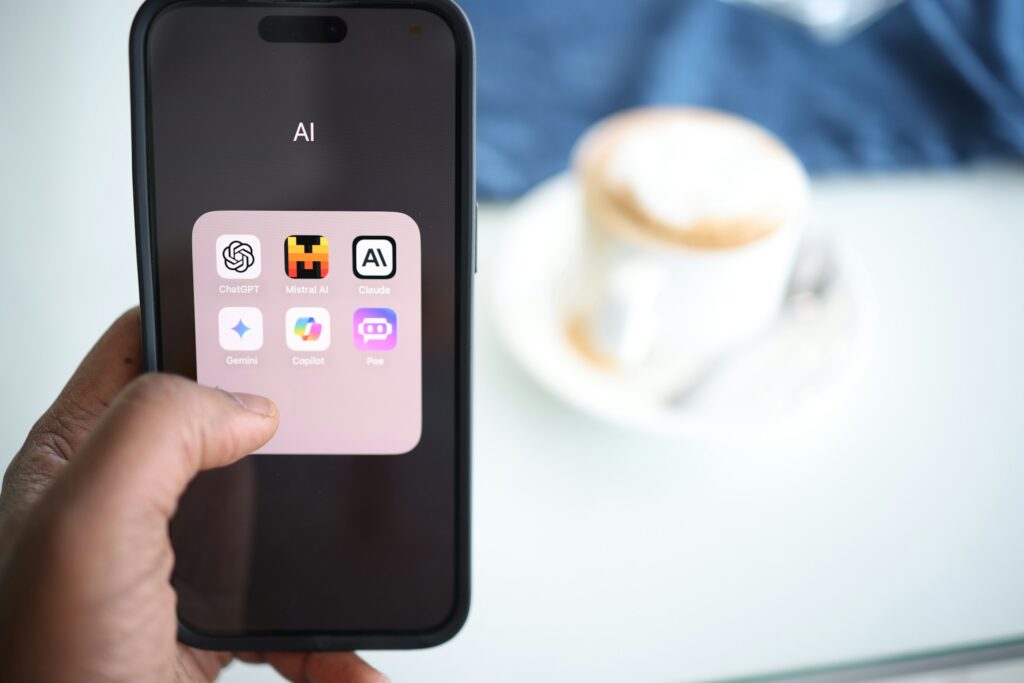
Now OpenAI says users are in control. You can choose which integrations to turn on or off, and that’s true. But it’s also a bit of an illusion. You can control what goes in, but once the AI starts making predictions and suggestions, it’s operating on its own logic.
Even if a suggestion is technically “helpful,” if it’s based on a misunderstanding of your private data, it’s still a privacy risk. And while your controls are manual and reactive, the AI is constantly processing, learning, and predicting in the background.
So yes, this kind of AI can make your mornings smoother. But the cost is handing over more of your personal world to a system that never stops thinking.
What’s Next—for You and Your AI?
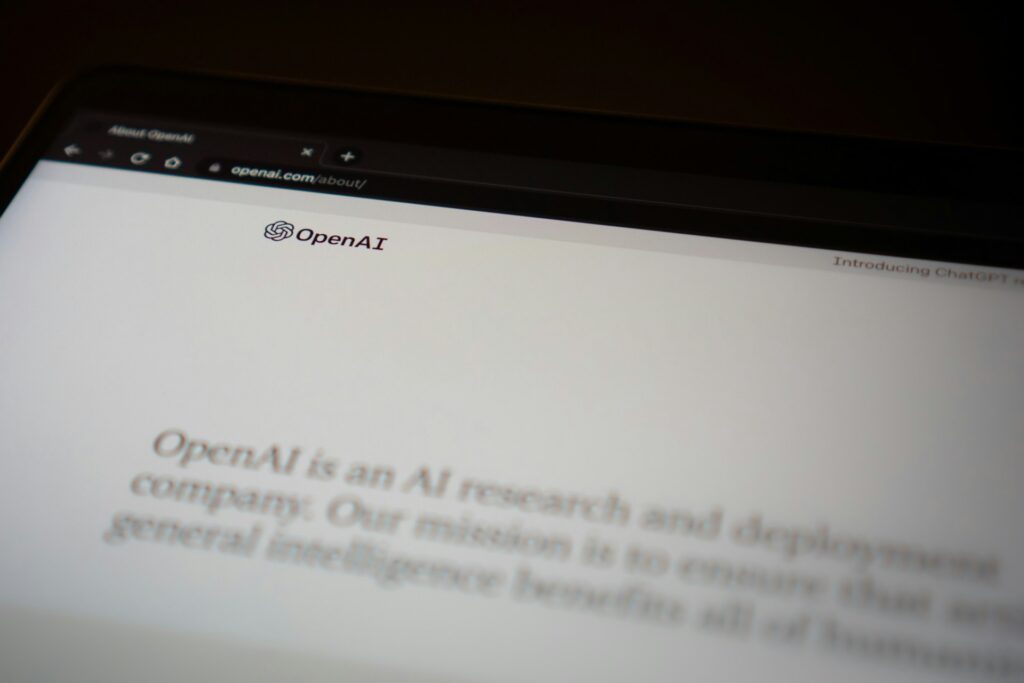
ChatGPT Pulse is impressive. It cuts through the noise and gives you a cleaner, more focused way to start your day. It’s a glimpse into a future where technology quietly works in the background, doing the heavy lifting for us.
But it’s also a carefully designed invitation to start sharing more of your digital life. Bit by bit, it’s getting us used to the idea of letting AI step in, not just as a helper, but as a decision-maker.
In many ways, it’s training us as much as we’re training it.
OpenAI wants ChatGPT to become the super assistant; more helpful and proactive than anything offered by Apple, Google, Meta, or Microsoft. It’s hoping to earn your trust—and eventually, your loyalty. This is the opening move in a much bigger battle for the future of personal computing.
The appeal is obvious. A life with less friction. Fewer decisions. A digital world that just… works. But that comes with a trade-off, one that asks for an unprecedented level of access and trust.
The age of proactive AI is no longer some distant future. It’s already knocking. The question is: are we ready to open the door?